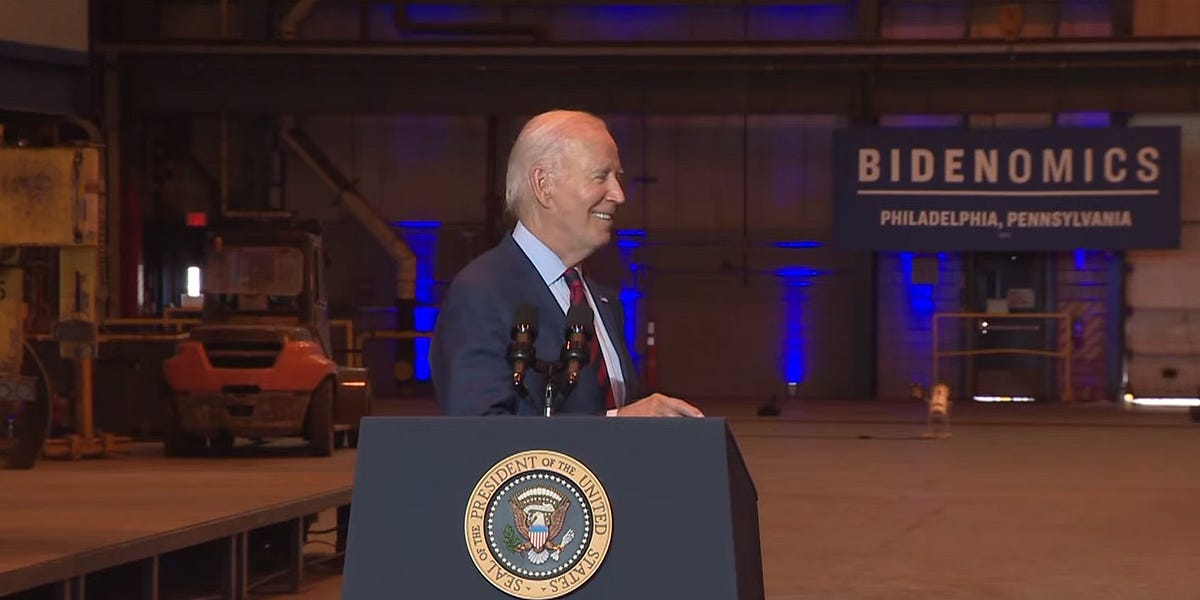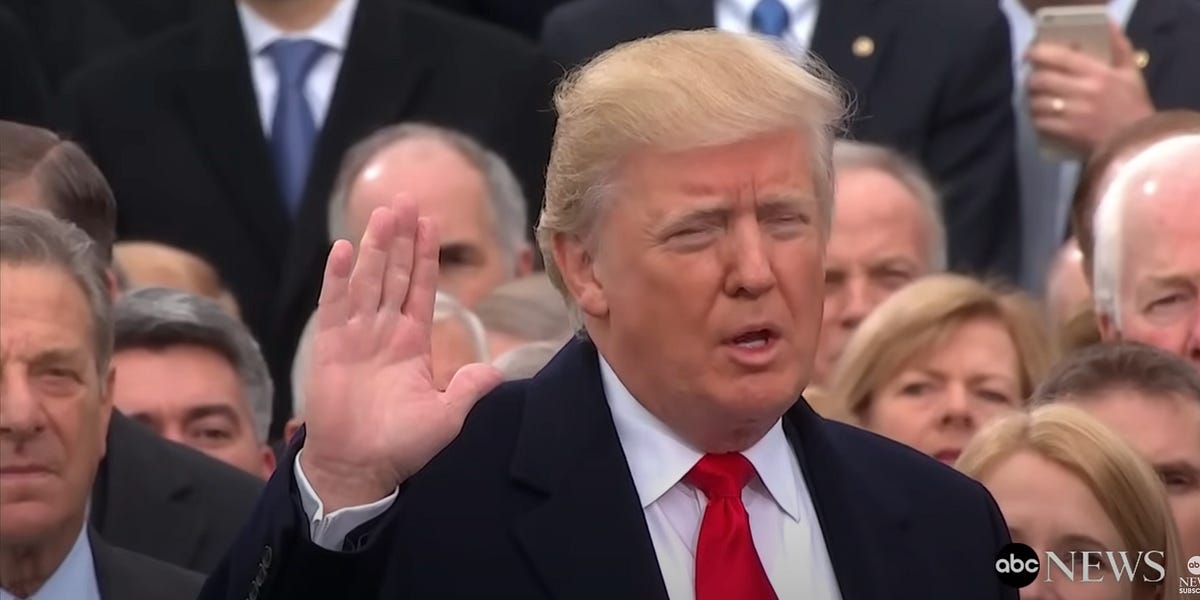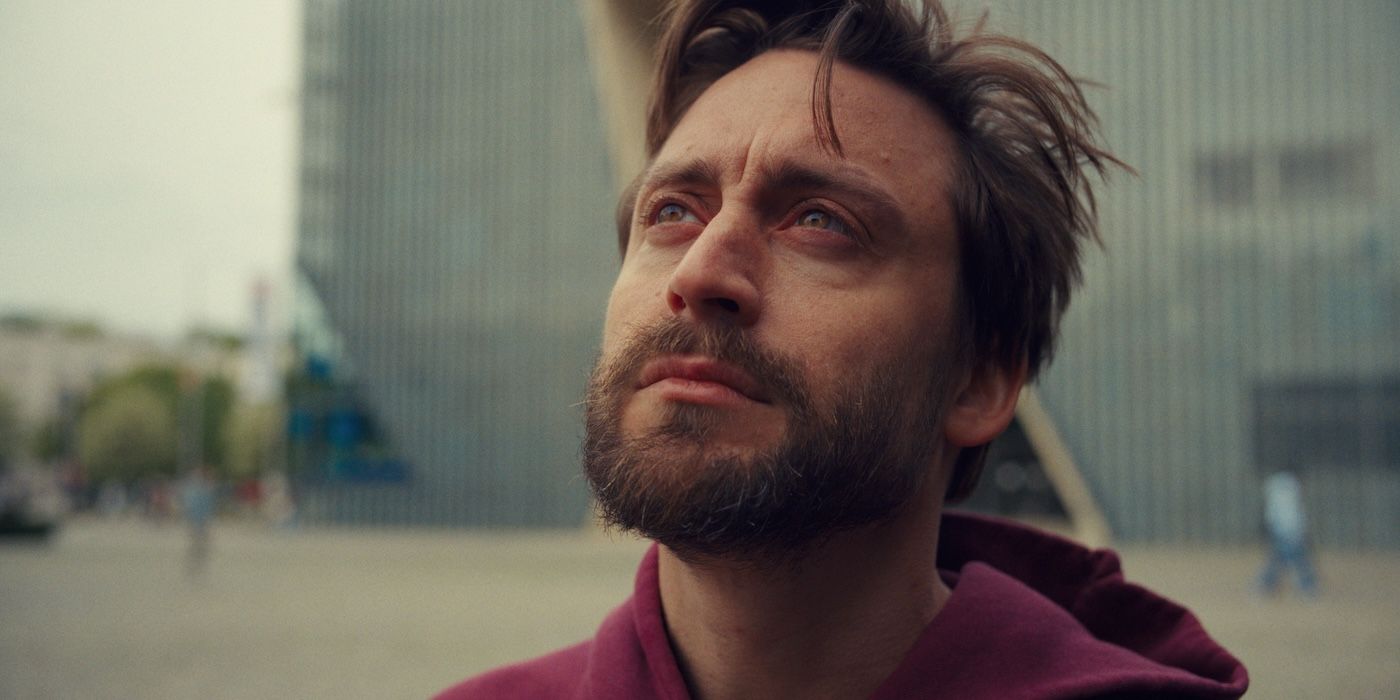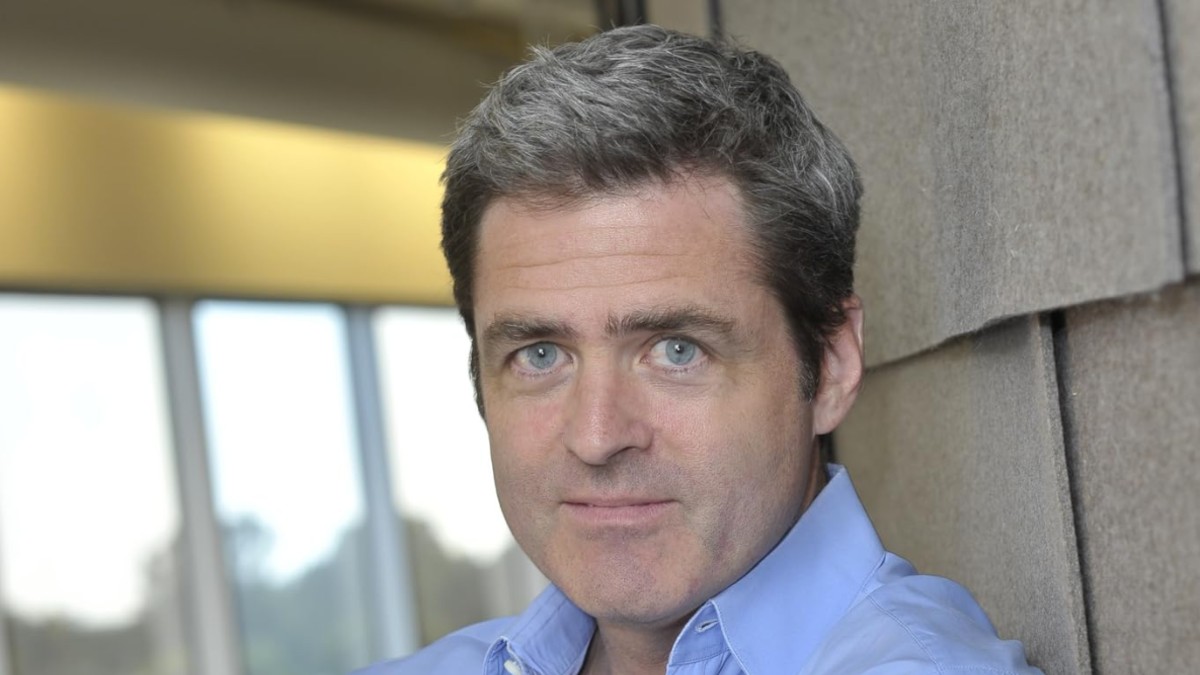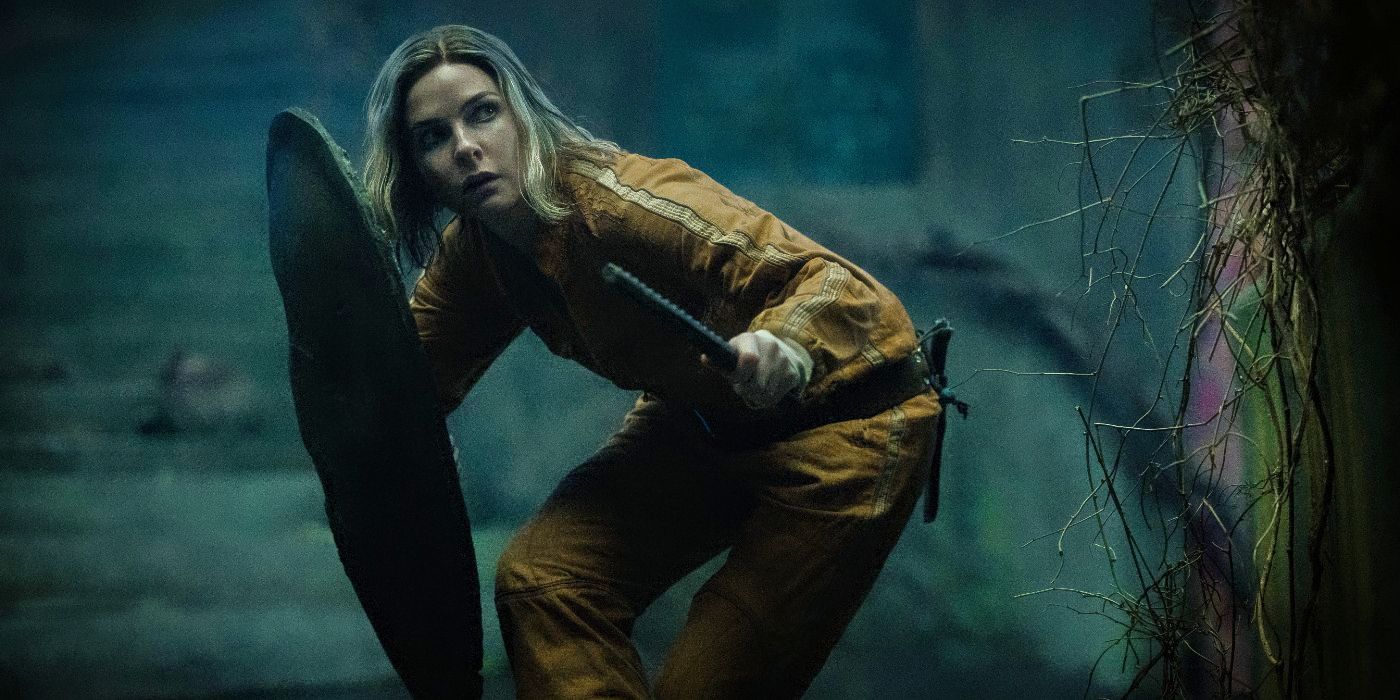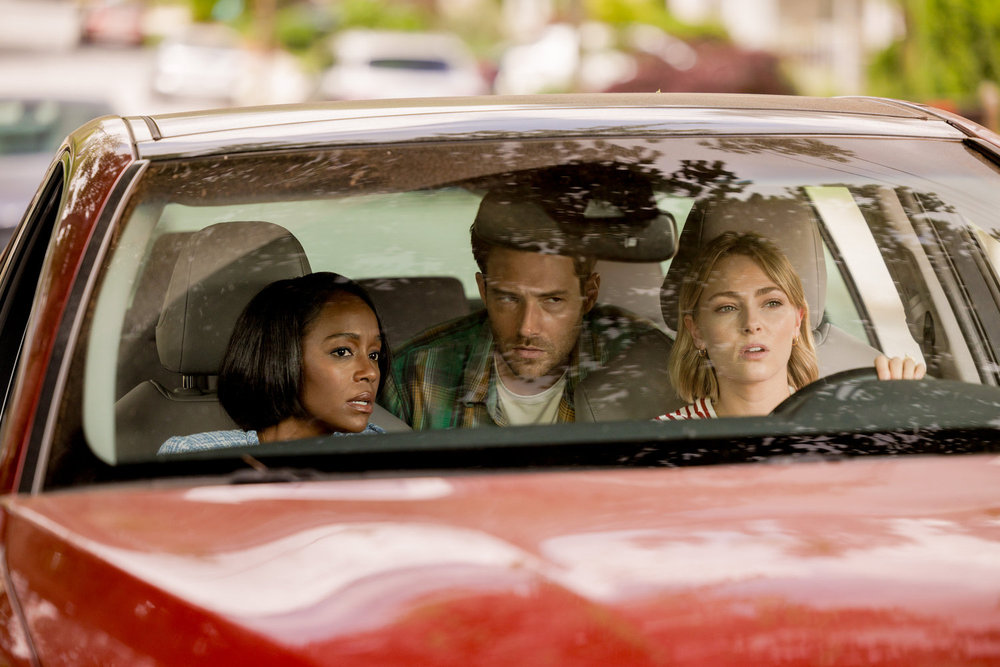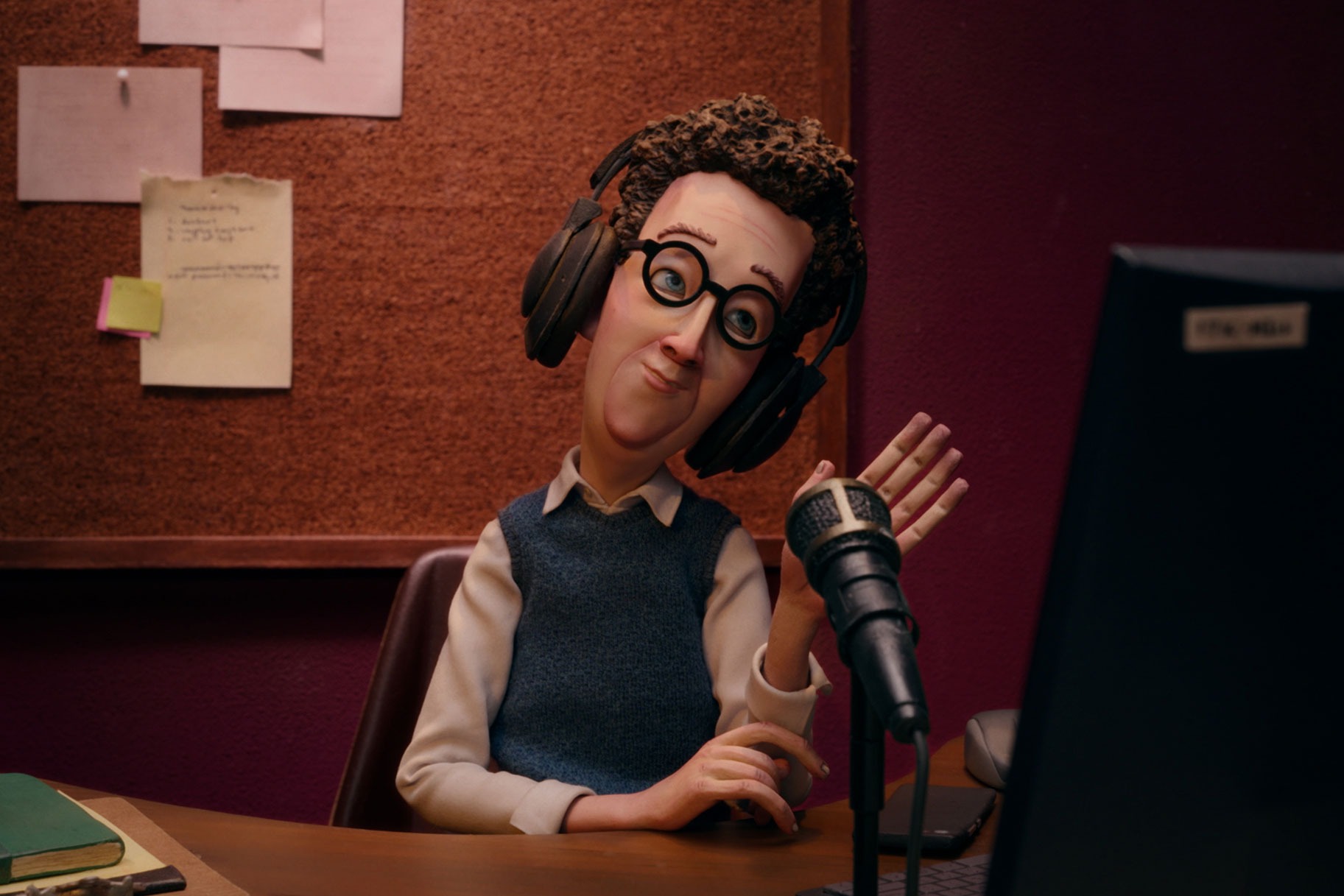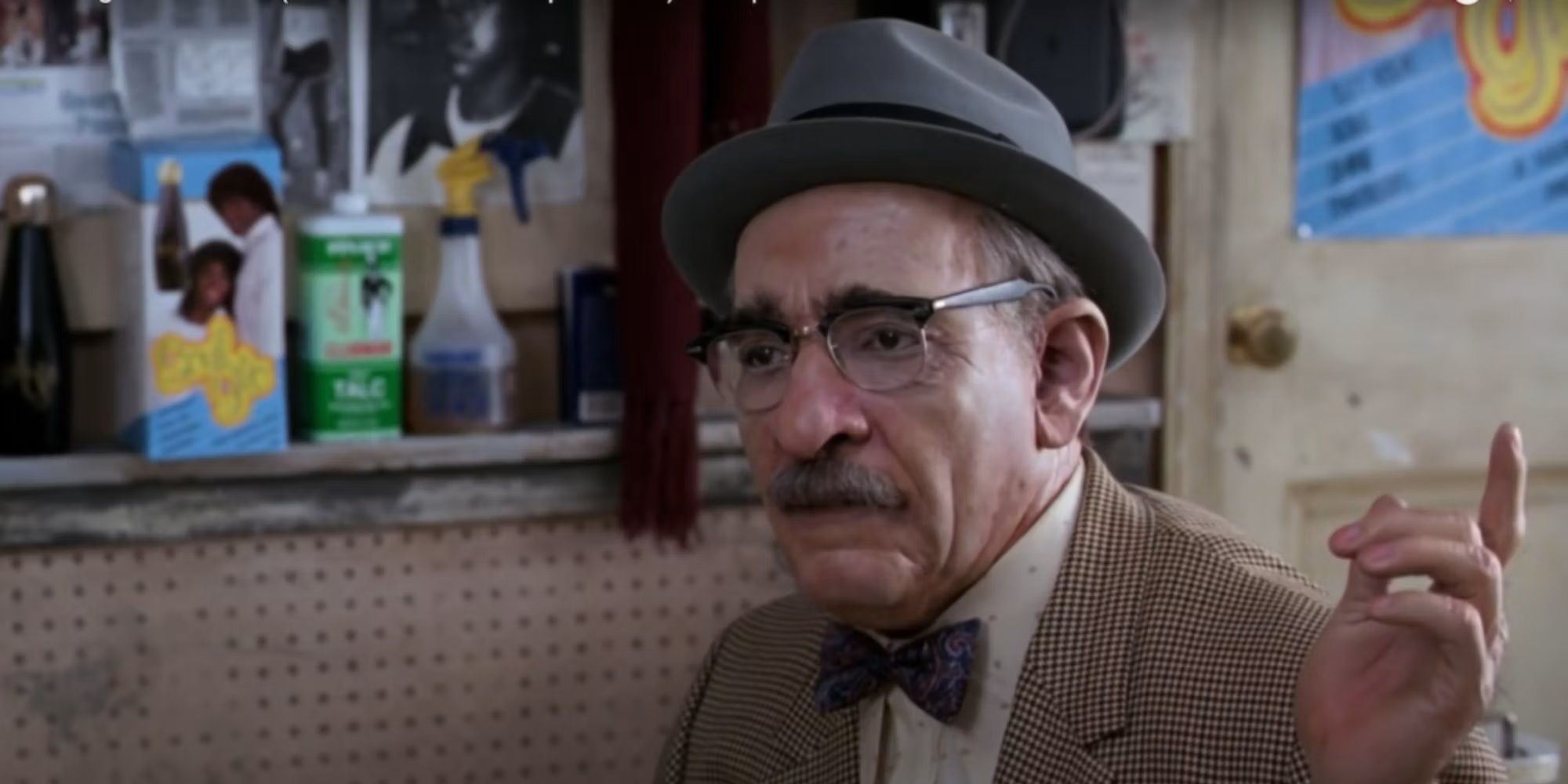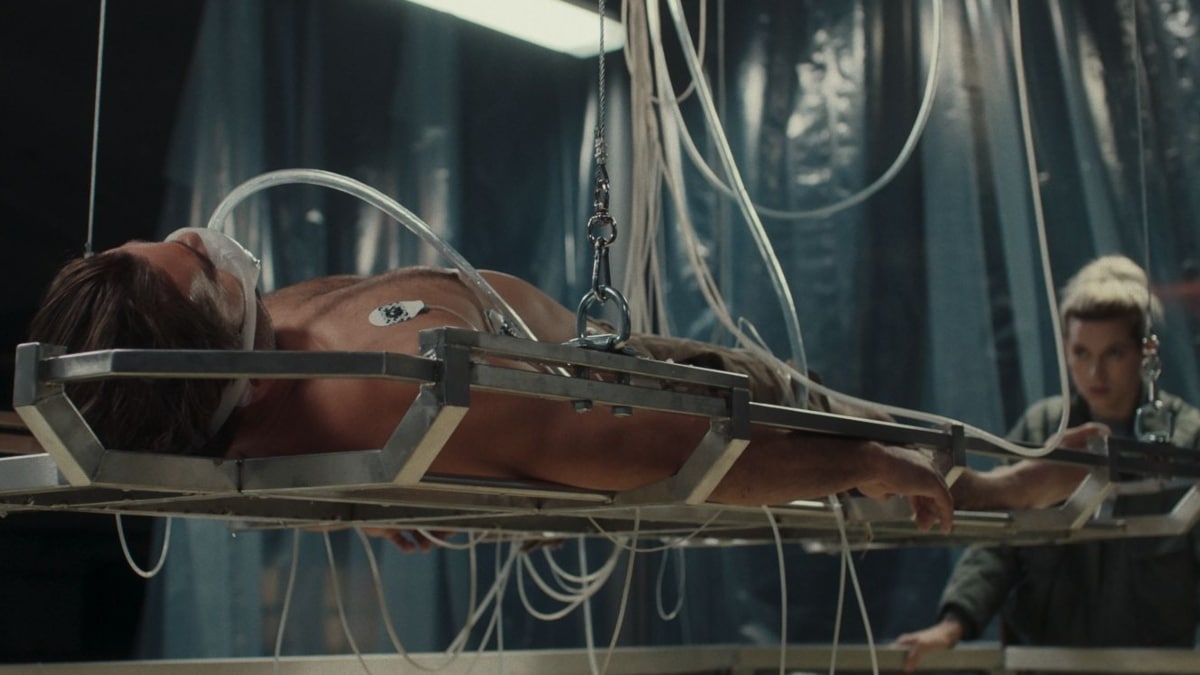
Restore Point finds itself in a comfortable position of sitting at the big kid table with other cinema giants such as Blade Runner. The film has a smaller budget than most films of that caliber but remains fearless of big ideas.
In an age where Marvel is producing $100 million television shows, and studios are churning out $300 million films (as if the money will fix the issues), Restore Point is an example of making a film feel expensive.
And it does so while capturing a dialogue-heavy sci-fi narrative that ignites the imagination.
Restore Point centers on Detective Em Trochinowska (Andrea Mohylová), a matter-of-fact officer navigating a strange 2041 political landscape surrounding a new constitutional law that gives individual rights to be brought back to life if they were to die unnaturally.
The tech behind this newfound freedom is called Restore Point, where individuals can back up their memory every 48 hours in case of an unnatural demise.
Em is about as cold as Ryan Gosling in Blade Runner 2049. She walks into every situation with the temperament of butter. Smooth and calm in every part of her job. If she had a bazooka pointed at her face, Em would not sweat.
A tech-savvy mystery
Mohylová performs confidently in a role that typically would be given to a male, and she is tremendous as the character. Very reminiscent of Emily Blunt in Sicario.
Em has a hostage situation gone wrong, leading to her being assigned to a murder case. A man named David Kurlstat (Matěj Hádek) has been murdered alongside his wife, with no visible backup to restore his body. There are suspicions of an extremist organization known as River of Life. A group Em has a problematic history with, a point her superiors claim impacts her judgment as an officer.
Things get bizarre as David reappears before Em. This adds to the mystery as others gave intel that David had no backup. This David claims to remember nothing before he and his wife were murdered. It forces them both down a tangled web of uncovering the mystery of David’s resurgence and murder.
Director Robert Hloz, who also co-wrote the script with Tomislav Čečka and Zdeněk Jecelín, made a movie that feels like a relic of a bygone era. In the late ’90s and early 2000s, studios were not afraid to envision big ideas within a small narrative. For example, Dark City and Gattaca.
The world-building in Restore Point feels expansive and realized, but we spend a lot of time in intimate settings. There are long scenes where we find characters having extensive disagreements over politics, the optics of their official duties, and how it impacts allies in their investigation, including the restoration company.
In these moments, the movie confidently shows a narrative can remain engrossing without a giant spectacle. Suspense is more than just car chases, explosions, and laser beams in the sky.
The dialogue-heavy nature of Restore Point can be challenging for viewers accustomed to Hollywood-style Marvel/DC storytelling. To fully appreciate the elaborateness of the plot, one must pay close attention as the characters engage in rapid-fire conversations and investigate each moment until the story reaches a turning point. Every detail matters, and missing even one moment can leave the viewer feeling lost. However, this conversational tech-thriller never feels expository.
The technical ideas of the film are undoubtedly impressive, and the concept is well-developed. However, there is room for the movie to explore this idea more effectively. The idea of being able to restore oneself repeatedly and potentially losing memories of events after each restoration point presents a wealth of narrative possibilities.
This aside, without spoiling the film, a fascinating concept is discussed regarding “cell memory” and the consequences of waiting too long to restore one’s life. The idea is impressively clever.
A captivating futuristic thriller
In any case, Robert Hloz has shown exceptional craftsmanship here as a possible future auteur. The film feels like a cult classic in the making. It is challenging to create movies that have a grand sense while also exhibiting restraint, and Hloz has achieved this with great success.
Restore Point is a captivating futuristic tech thriller that will please science fiction fans. While the clever premise could have been explored more fully, the film stands out as an excellent example of skilled filmmaking driven by a bold dialogue-driven narrative.
This concept has great potential for further exploration and storytelling. Whether it’s through a sequel or a television anthology, there are more narratives to be discovered within the concept of restoring one’s consciousness to a previous date in case of unnatural death. The universe is ripe for further mining.
Be sure to read our Part 1 and Part 2 most anticipated films at Fantasia, our reviews of Shin Kamen Rider and Stay Online, our reviews of Lovely, Dark, and Deep, and Blackout, and our review of River. Stay tuned for more Fantasia Film Fest reviews at Monsters and Critics.
Fantasia Film Festival continues until August 9.







